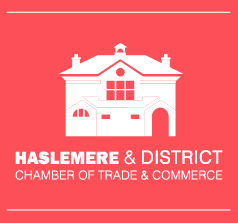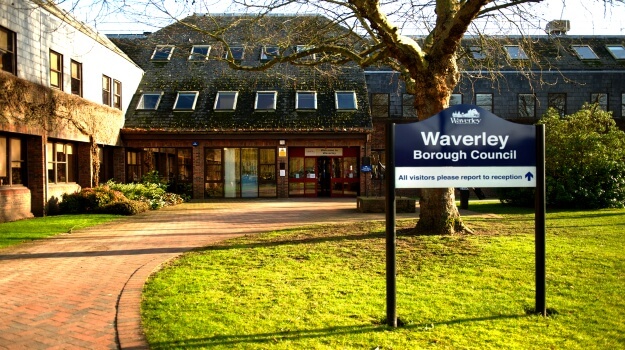Simon Piper, Revenues Manager, Waverley Borough Council has provided a note on the 2017 Business Rate Revaluation, covering in particular the appeals process and the available reliefs.
He says: “I know the discretionary rate relief scheme is of particular interest to you. Further consultation on the detailed scheme will follow shortly.
“As regards the relief schemes, your members that they may receive offers from third parties offering to obtain a particular relief on their behalf for a fee. Please urge caution and suggest they contact us direct (at no cost) and take great care before instructing a third party.”
2017 BUSINESS RATES REVALUATION
The 2017 Revaluation is a statutory requirement and was carried out by the Valuation Office Agency (VOA) in order to update the rateable value of all non-domestic premises. The rateable value represents a hypothetical rent that the property might reasonably be expected to be let from year. Inevitably rental values change over the years and the Revaluation reflects these changes.
APPEALS PROCESS
The appeals process has changed through the introduction by the Government of ‘Check, Challenge and Appeal’.
CHECK – the CHECK stage requires the ratepayer to ask the VOA for information about the property and if it is found to be inaccurate tell the VOA accordingly. The VOA will correct any inaccuracies and advise the ratepayer accordingly
CHALLENGE – if the ratepayer believes that the rating assessment is still incorrect a ratepayer may make a proposal to the VOA. The proposal must include the grounds of the proposal and a statement as to how the evidence supports the grounds.
APPEAL – if the VOA does not agree that the proposal is well founded he will issue a decision notice which explains why he has not agreed with the grounds of the proposal. The ratepayer may then appeal to the Valuation Tribunal, for which there is a fee that will be refunded if the appeal is successful.
The VOA website provides information on all rated premises and guidance on how to appeal:
The Valuation Tribunal website is being developed to provide further guidance on the new scheme:
https://www.valuationtribunal.gov.uk/
An appeal may be made by the ratepayer or through an agent. It is important to take care when appointing an agent. It is recommended that ratepayers bear in mind that members of Royal Institution of Chartered Surveyors (RICS – www.rics.org) and the Institute of Revenues, Rating and Valuation (IRRV – www.irrv.org.uk) are qualified and are regulated by rules of professional conduct designed to protect the public from misconduct. Before you employ a rating adviser, you should check that they have the necessary knowledge and expertise, as well as appropriate indemnity insurance. Take great care and, if necessary, seek further advice before entering into any contract.
EFFECT ON THE RATES BILL
Revaluation can cause a significant change in a rates bill as a consequence of an increase or decrease in a rateable value.
The Government has mitigated against large increases in a rates bill through various schemes:
- Transitional arrangements
- Small Business Rates Relief
- Supporting Small Business Rate Relief
- Discretionary Business Rate Relief Scheme
- Pub Relief
TRANSITIONAL PHASING
The 2017 scheme compares the rates bill for 2016/17 and 2017/18 and limits the increase as follows:
| Transitional Arrangements 2017 revaluation (before inflation) funded by 3 caps on reductions | ||||||
| Property size | 2017/18 | 2018/19 | 2019/20 | 2020/21 | 2021/22 | |
| Small | 5% | 7.5% | 10% | 15% | 15% | |
| Upwards cap | Medium | 12.5% | 17.5% | 20% | 25% | 25% |
| Large | 42% | 32% | 49% | 16% | 6% | |
| Small | 20% | 30% | 35% | 55% | 55% | |
| Downwards cap | Medium | 10% | 15% | 20% | 25% | 25% |
| Large | 4.1% | 4.6% | 5.9% | 5.8% | 4.8% | |
The scheme is self financing so reductions in rateable value are also phased in.
The rates bill should have the transitional arrangements already included and there should be no need for a ratepayer to apply.
SMALL BUSINESS RATE RELIEF
The existing scheme has been enhanced so that if your rateable is less than £15,000 it is likely that there will be an entitlement to Small Business Rate relief. If the rateable value is £12,000 or less there will be 100% relief and between £12,001 and £15,000 the relief will be tapered from 100% to 0%.
Generally Small Business Rate Relief is limited to those ratepayers with only one rateable property. However, if none of the other properties have a rateable value above £2,899 and the total rateable value of all properties is less than £20,000 Small Business Rate Relief may still be granted.
A useful crib sheet is available from a chartered surveyor on their website:
http://www.centre-p.co.uk/Councils_Small_Business_Rates_Relief_2017_2018.pdf
Finally, if a second property is occupied with a rateable value more than £2,899 the relief will normally be removed. However, for a limited period the legislation allows the Small Business Rate Relief on the original property to continue for a period of 12 months.
An application form is available on the Council’s website or a form can be posted on request.
BUSINESS RATE RELIEF (WBC executive agenda item: approved 11 July 2017)
1. On 1 April 2017, the Government implemented its nationwide revaluation of business premises for the purpose of calculating business rates. Many small businesses benefitted from extensions of the small business rate relief, therefore have not seen an increase in rates payable. However, in March the Government announced that, in recognition of the extent of the resultant increase in bills for some businesses, it would provide £300m for councils across the country to give additional relief for those most affected by the revaluation increase. The £300m is spread over 4 years starting in 2017-18 and the Government set out some broad qualifying criteria, however, they have indicated that it is for individual Councils to set their own detailed criteria. Clearly in doing so, councils need to be mindful of the demand locally and also the administrative burden that the scheme may require.
2. Waverley’s share of the £300m is as follows:
2017/18 £493,796
2018/19 £239,844
2019/20 £98,759
2020/21 £14,108
3. The Government launched a consultation in March to help shape the guidance around the scheme but the calling of the general election stalled the issue of the guidance. Whilst the Government has indicated that further guidance will be necessary before individual councils can finalise and operate their schemes, officers are keen to secure approval for the headline criteria and a delegation to finalise and launch the scheme as soon as possible. This will put Waverley in a position to allocated funding to those businesses that have had a significant increase in their rates bill as soon as possible without having to wait for the next Executive meeting in September.
4. The proposed minimum criteria is as follows (which accords to the Government guidance):
i. Rateable Value MUST be less than £200,000
ii. The increase (before reliefs) is more than 12.5% in 2017/18.
iii. A signed declaration to accompany all applications confirming any award would not breach state aid rules i.e. that the business would not receive a total of more than 200,000 euros in a three year period for all its businesses receiving support.
iv. Documentary evidence of financial hardship to be provided including up to date trading accounts.
v. As funding will be limited, applicants should provide a description of the business/service they provide to the Council tax payers of Waverley Borough and an explanation of how this provides a beneficial service to the residents of the borough. This will help target support to those businesses that are most beneficial to the borough.
vi. The application form contains a statement informing the applicant that any award is subject to recalculation should circumstances change i.e. rateable value alteration and will be re-assessed at each financial year while the temporary support scheme is in place.
5. It is proposed to consult with Surrey County Council and discuss the final proposals with the Chambers of Commerce. This relief scheme will not have a financial implication for Waverley provided that allocations of relief are kept within the Government funding allocation and provided that the scheme does not require additional resources to administer.
6. In addition to the relief scheme described above, the Government also announced that it expects councils to introduce a rate discount scheme for public houses. Qualifying businesses can get £1,000 off their business rates bill if they’re a pub in England with a rateable value of less than £100,000. The relief will be applied from 1 April 2017 to 31 March 2018. The government is still developing this scheme and will confirm the details in due course but, again, officers are keen to secure the Executive’s approval as soon as possible so that these discounts can be applied without delay. This scheme will be fully funded by the Government.

